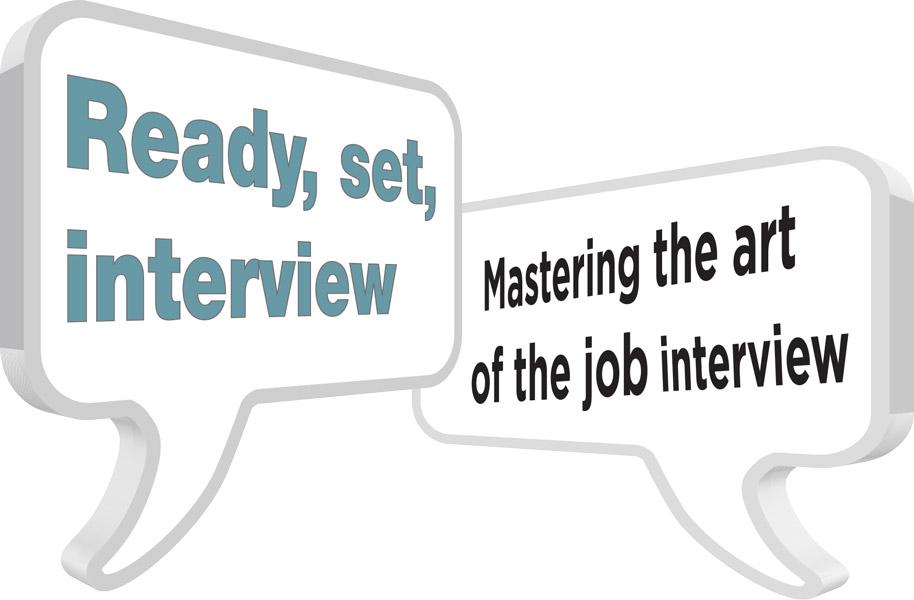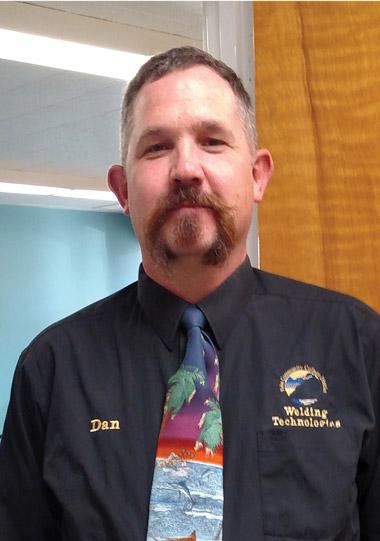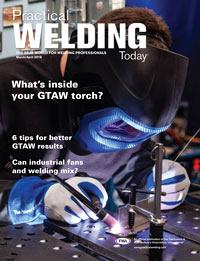Welding Professor
- FMA
- The Fabricator
- FABTECH
- Canadian Metalworking
Categories
- Additive Manufacturing
- Aluminum Welding
- Arc Welding
- Assembly and Joining
- Automation and Robotics
- Bending and Forming
- Consumables
- Cutting and Weld Prep
- Electric Vehicles
- En Español
- Finishing
- Hydroforming
- Laser Cutting
- Laser Welding
- Machining
- Manufacturing Software
- Materials Handling
- Metals/Materials
- Oxyfuel Cutting
- Plasma Cutting
- Power Tools
- Punching and Other Holemaking
- Roll Forming
- Safety
- Sawing
- Shearing
- Shop Management
- Testing and Measuring
- Tube and Pipe Fabrication
- Tube and Pipe Production
- Waterjet Cutting
Industry Directory
Webcasts
Podcasts
FAB 40
Advertise
Subscribe
Account Login
Search
Ready, set, interview
Mastering the art of the job interview
- By Dan Turner
- March 17, 2016
- Article
- Arc Welding
The welder shortage has been well-documented over the years, prompting community colleges, technical schools, and high schools to step up their training efforts to help prepare students to make an immediate impact on the workforce. But there’s just one problem—many are not adequately prepared for the first stage of career searching: the interview process.
I have served on several employment search committees, both as a member and as an Equal Employment Opportunity (EEO) representative, to help select and interview for positions such as the college president, director of human resources, and automotive instructor, just to name a few. Through my experience I have learned that search committees usually follow several steps. Although these steps are different for different industries, there are many similarities that cross many types of jobs.
Here are a few tips to help you show up prepared and ready to make the best impression possible.
Make Your Resume Stand Out
The process of sorting through resumes, also known as paper screening, can be long and tedious. To ensure that your resume doesn’t get lost in the shuffle, you’ve got to make it stand out. Usually a search committee reads through resumes and applications in alphabetical order. If your last name begins with an A, B, C, or D, make sure that your application is one that the evaluators will compare all others to. If your name begins with a letter in the bottom half of the alphabet, you really have to have a resume that wakes up the reader and leaves an impression that will raise the scores on the evaluator’s card. Readers are looking to connect with the applicant, and adding situations in which you have applied your skills can assist you in doing this.
If you are applying for a position at a college, the people reading and evaluating your resume will probably be a mix of faculty and administrators. If you are applying for a welding job at a fab shop, oftentimes the evaluators are the owners of small businesses, a shop supervisor, or fellow welders. Make sure that you are using industry language to give the panel confidence that you know what you are talking about.
What to Expect During the Interview
I have witnessed great interviews and some that were not so polished. Traits of a less than stellar interview include talking too quietly, not making eye contact, not answering the question, not using examples that relate to the question or job responsibilities, and wearing inappropriate attire.
Never slouch during the interview. Instead, lean forward and show interest in the interview committee. Your posture and body language say a lot about you.
When speaking, use words that are industry-appropriate and stay away from words such as “like,” “you know,” and “um.” At the end of the interview, make sure that you thank the committee for their time. If you feel it is appropriate, send a thank you card to the interview committee.
Many interviewees struggle with time management and do not answer the questions asked. Sometimes interviewees are given the questions about 15 minutes before the interview, and sometimes they are not. If they are available ahead of time, take the time to evaluate the questions and see where your strengths are and where they are not.
Be prepared to answer some questions that will give the committee a sense of what type of person and employee you’ll be. Here is a list of common interview questions you should expect to answer:
- Tell us about your education, training, and experience.
- Tell us about your knowledge of new technologies. This can be in reference to computers, welding power sources, fabrication equipment, software, and other industry-related technologies that you know and have experience with. Feel free to give an overview of anything that relates to the job you are applying for.
- What are your weaknesses? This question can be tricky. My advice is to talk about something that sounds like a weakness, but really isn’t one. For example: “I tend to take on and accept a lot of responsibility that requires a lot of personal time to work on and finish.” You’re basically saying that you enjoy working so much that you do it even on your own time.
- How have you settled differences with a co-worker in the past? The committee is looking for someone who will fit into the dynamics of their company and is a team player. They want to know how you will deal with conflict within a team environment.
- Why do you want to work here? This gives you an opportunity to tell the employer what you know about their business. Try to be accurate in your responses and, if you are interviewing at multiple companies, take special care not to get confused as to who you are interviewing with that day. I have been in interviews where the interviewee talked about another school and told us about their policies and operations thinking it was our school. Not a great move.
Practice what you will say ahead of time so that the information you provide seems natural and concise. Doing this also will help you remember everything you want to say.
Combating the Jitters
People often ask me how they can be less nervous for a job interview. I tell them that the employer is trying to get to know you, so just introduce yourself and what you can do. An employer is looking for someone who will fit into their business model and help the business be successful. Practice before the interview with your instructor, parents, or other people you know who have experience with interviewing. People are often nervous with interviews because it is not something they do every day.
Take a deep breath and put on a friendly face; enter the room smiling and look like you are happy about being there. It is always important to remember that you have done your research and prepared through your education and experience for the position. Get comfortable and be confident during your interview, and sit up straight and look at the people you are talking to. Another thing to remember is that even if you interviewed well but don’t get the job, they will remember you if another position opens up.
Budget your time during the interview, focus on your strengths, and draw attention away from your weaknesses. The best interviews I have presided over are when the interviewee answers the questions using personal experiences that are relevant to the question. I want to hear about your experience, what you learned from it, how you have implemented this experience, and how this will help you in the job you are applying for, and your potential employer will too.
Make sure to do your homework about the job as well as the institution. I have been in interviews where the applicant knew nothing about the institution, which wasn’t impressive. What is impressive—and what will impress a potential employer—is when you can bring in facts about the company and why it is going to be a good fit. During your interview, tell the committee why you want to work at their school or company and why you think you are a good fit for them.
Clothes Matter
The way that you dress is a billboard for who you are to those interviewing you. No matter what job you are interviewing for (e.g., production welder, welding instructor, pipeline welder), make sure your clothes are clean and pressed, and arrive prepared for anything. I recommend that you always err on the side of caution with your dress for the interview. If you’re not sure what to wear, call and ask what the dress requirements are for the interview.
When I applied for the welding instructor position I have today, I made sure to dress professionally, but I also had my welding gear with me. I didn’t know if there would be a weld test portion of the interview, so if there was I wanted to make sure I would be comfortable and have my own personal protection equipment handy.
Sometimes it doesn’t hurt to dress for your audience. I did my research on the president of a school I went to visit and found he was an academic with an art history background. When I met with him I wore slacks, a dress shirt, and a “Mona Lisa” tie. He commented on my tie, and from there I was able to discuss art with him and a little history too. I made sure to research the “Mona Lisa” prior to the meeting. It was a great ice breaker, and I made a positive and memorable impression. Always remember that what you wear should show respect to those who are interviewing you.
Postinterview Suggestions
The follow-up to the interview can be a difficult period. How long should you wait to contact the company after the interview to find out the results? At the end of the interview, thank the people in the room for their time and ask what the timeline for decision-making is going to be. This can lead to much less stress for you.
Prior to the interview, select your references and inform them of the jobs you are applying for. Ask them first if they are willing to recommend you and inform them that the company may be calling. After the interview, feel free to send a thank you note. It’s a nice touch that can also show the company that you are serious and appreciative of their time and for the opportunity.
About the Author
About the Publication
subscribe now
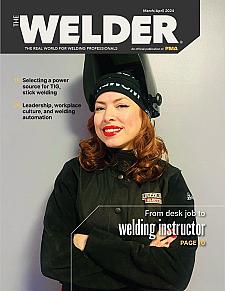
The Welder, formerly known as Practical Welding Today, is a showcase of the real people who make the products we use and work with every day. This magazine has served the welding community in North America well for more than 20 years.
start your free subscription- Stay connected from anywhere

Easily access valuable industry resources now with full access to the digital edition of The Fabricator.

Easily access valuable industry resources now with full access to the digital edition of The Welder.

Easily access valuable industry resources now with full access to the digital edition of The Tube and Pipe Journal.
- Podcasting
- Podcast:
- The Fabricator Podcast
- Published:
- 04/16/2024
- Running Time:
- 63:29
In this episode of The Fabricator Podcast, Caleb Chamberlain, co-founder and CEO of OSH Cut, discusses his company’s...
- Trending Articles
Sheffield Forgemasters makes global leap in welding technology
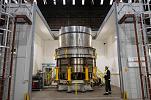
ESAB unveils Texas facility renovation

Engine-driven welding machines include integrated air compressors

The impact of sine and square waves in aluminum AC welding, Part I
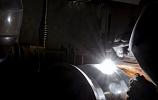
Compact weld camera monitors TIG, plasma processes
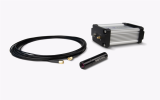
- Industry Events
16th Annual Safety Conference
- April 30 - May 1, 2024
- Elgin,
Pipe and Tube Conference
- May 21 - 22, 2024
- Omaha, NE
World-Class Roll Forming Workshop
- June 5 - 6, 2024
- Louisville, KY
Advanced Laser Application Workshop
- June 25 - 27, 2024
- Novi, MI
























